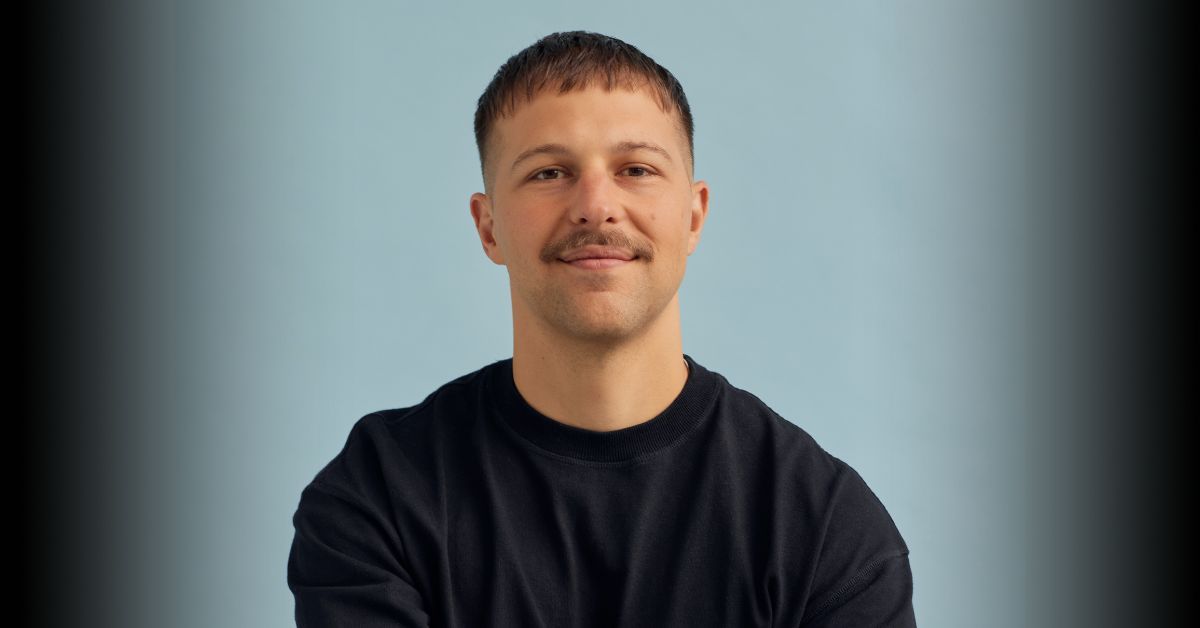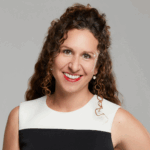Curtin graduate Daniel Principe has often seen himself as a bit of an outsider.
Raised mostly by his single mother, Daniel spent much of his early childhood moving between different states and territories across Australia.
As a young adolescent, he struggled to fit in and faced significant bullying. Interestingly, he confesses he was also a bully himself in year one – a time he can barely recall – during a volatile period of his life.
“These experiences led me to question how we socialise, especially how boys and men socialise – and much of it didn’t align with my personal views and understanding of how I thought the world could be,” he said.
On a mission to change this, Daniel champions boys around Australia to live courageous, respectful, and empathetic lives.
By partnering with schools and communities, Daniel has encouraged more than 76,000 young Australians to recognise and resist distorted attitudes towards their bodies, relationships, and sex.

Daniel is a 2025 NSW Australian of the Year nominee, recognised for his relentless dedication to strengthening the next generation to aspire to healthy relationships amid the complexities of the digital world.
Did you always envision yourself speaking to more than 70,000 students across Australia?
If you told the younger version of me that I’d be doing this, I certainly wouldn’t have believed you.
I’ve always been interested in social justice, but it’s only through my lived experiences that I’ve come to realise I need to make sure that I’m living in alignment with my values.
I believe that my work is not so much about telling people what to do but is an invitation for them to reflect on the messages they are receiving from the outside world.
I’m always looking at whether young people are being equipped with the right social and emotional tools to thrive in the fast-paced and noisy world they are navigating.
What led you to pursue a career in youth advocacy?
For me, I didn’t see any positive relationships modelled until my early 20s, so I’ve had a bit to unlearn and learn on this journey.
I’ve personally seen the carnage that can unfold in a person’s life and the world around them when we’re not healthy.
The reality is that it causes untold heartache, loss of life, and destruction of families and communities when we don’t surround ourselves with love, care, empathy, and connection.
That’s something that runs through every person’s life; we all see it.

I saw it in high school, through the callousness that boys are sometimes routinely encouraged to adopt to survive.
It’s not their fault – rather, our culture can push this onto them, and we are often tempted to betray our better nature for the sake of acceptance.
So, I sympathise with that, and I don’t judge people for it. Rather, I want to get to the heart of the real issue.
Can you share a bit about what you do?
I do a lot of yapping! I listen to young people and engage with their educators, parents, and communities.
I’m always seeking to move beyond my own biases and explore how our identities are shaped – from what’s role-modelled at home to the heroes we are upholding.
I try to tune into the socio-cultural messages that shape the world around us – the way we talk, dress, act, and even the food we eat are all culturally constrained, and that’s not necessarily a bad thing.
As human creatures, we are all naturally wired for connection, so it only makes sense that we would engage in certain activities to be accepted by others.
However, we should always question what we are observing and learning, and whether it’s impacting our ability to connect and relate well to others.
What are some of the biggest problems youth are facing today?
Boys are being socialised through social media and pre-existing masculine culture to perform a calloused, cruel vision of masculinity that says you should be tough.
The toughness being celebrated is not grit or finding resolve; it’s not about bouncing back from rejection or disappointment. It can be cruel and indifferent to suffering, and that’s an absolute travesty.
One of the most significant challenges is educating men about intimacy and consent, as this generation has far greater access to harmful and more extreme versions of sexual content.

My biggest concern is that they are constantly being bombarded with conflicting views of success and relationships, which can lead them to become easily discouraged because they are not going to be an overnight success story or have an idealised body.
Don’t get me wrong, the phone is a great tool and has helped me in many ways with my work and advocacy, allowing me to meet incredible humans and collaborate. But if I don’t relate to it as a tool, that’s when it robs me of my well-being, focus, creativity, and real connection.
This International Youth Day, what advice would you share with young people?
Don’t let social media algorithms run your life and shape your values; take back your power and agency.
Be selective about your online space. Don’t be afraid to unfollow accounts that undermine your wellbeing and make you feel more anxious or insecure – it could be the biggest gift you give yourself.
Don’t make life harder than it needs to be – go and find things that you enjoy.
Learn new skills and do things that make you come alive offline, go and chase that!
Choose your friends wisely and make it easy for one another.
Always think, are you making it easier for your friends to be the best version of themselves, or do people have to wear a mask or be on guard around you?
At the end of the day, young people are starving for connection. As adults, we need to make ourselves available. They will be more open to our advice and company once they know that we care about them. I think we owe it to them.
Learn more about Daniel’s work here.
Discover more of our incredible graduates making an impact here.
Daniel Principe, Youth Advocate & Educator
Graduating from Curtin with a Bachelor of Science (Physiotherapy) in 2009, Daniel is a passionate youth advocate and educator. He is passionate about championing boys across Australia to challenge culture and aspire to live courageous, respectful, and empathetic lives. By partnering with schools and communities, Daniel encourages young people to recognise and resist distorted attitudes towards bodies, relationships, and sex. He is a board member of the DART Institute, Women’s Resilience Centre Ambassador, and an ambassador for the national campaign, Consent Can’t Wait. He was also nominated for the 2025 NSW Australian of the Year.



